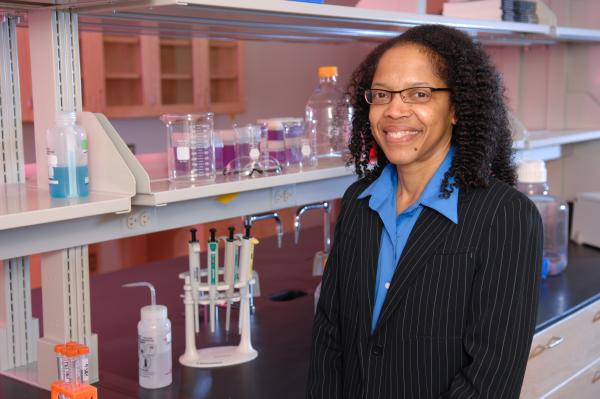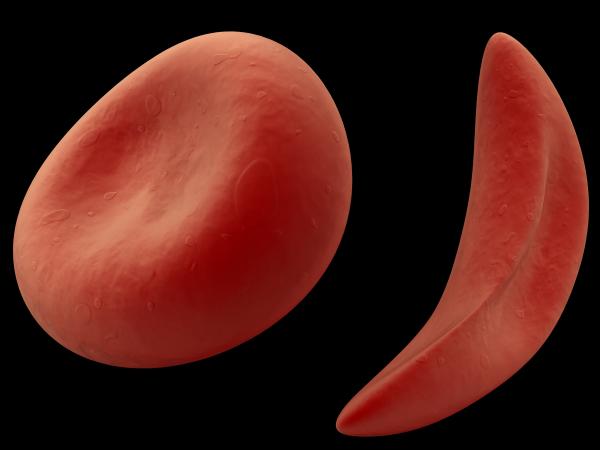Georgia Tech will host the Sickle Cell Disease Symposium
bringing together researchers, policy experts and community advocates to
discuss the latest research and strategies for future success in combating this
complex and debilitating blood disorder. The symposium begins at Georgia Tech’s
Institute for Bioengineering and Bioscience on November 4 and concludes the
evening of November 5.
“There’s a misconception that sickle cell disease solely affects
African Americans and that it does not represent a health disparity. All
races can be affected and the disease is most prevalent in those with ancestry
from sub-Saharan Africa, Saudi Arabia, India, the Mediterranean and Latin and
South America,” said conference organizer Gilda Barabino, professor and
associate chair for graduate studies in the Wallace H. Coulter
Department of Biomedical Engineering at Georgia Tech and Emory University. “Sickle cell
disease is prevalent in populations that face social, economic, cultural,
structural, geographical and other barriers to comprehensive and quality care
and, as such is among the diseases that involve health
disparities.”
Sickle cell disease is a blood disorder that
results in patients having mostly hemoglobin S in their blood streams. Patients
with this disorder often have red blood cells that take on a sickle shape,
rather than the typical disc shape. The sickle-shaped blood cells are less
pliable than normal red blood cells, making it difficult for blood to pass
through small blood vessels. When sickle cells clog up small blood vessels,
less fresh blood can flow to that tissue, causing damage and the eventual
complications that accompany sickle cell disease.
“There is no cure for sickle cell
disease, and existing therapies are limited in their benefit to patients.
This blood disorder involves virtually every organ system, and each must be
addressed in the context of the other systems,” said Barabino. “While
understandably, since Sickle cell disease is a blood disorder, hematological
perspectives have dominated, there is much to learn from other areas to include
perspectives on public health, nutrition, health outcomes and surveillance.
Future translational advances in the next century will only occur through integrated
approaches that view the patient in total and draw on the tools and
technologies of a variety of disciplines.”
The symposium will gather experts from the U.S.
Centers for Disease Control and Prevention, Children’s Healthcare of Atlanta,
the University of Southern California, the University of California – San
Francisco, the University of Minnesota, the University of Virginia, the
University of the West Indies and Medical College of Georgia as well as the
Georgia Institute of Technology and Emory University.
By bringing together scientists, policy experts
and consumers, the organizers hope to build a true community amongst
researchers aiming to develop treatments and possible cures for this disease.
They also aim to strengthen existing partnerships and develop a blueprint for
research that establishes the state of Georgia as an unrivaled leader in this
field.
“Sickle cell disease is a very complicated and
debilitating genetic blood disorder for which a cure and effective treatment
strategies remain elusive, even 100 years after the initial discovery of the
disease. By bringing together these groups, we seek to work across boundaries
and deliver a blueprint for an integrated sickle cell research strategy,” said
Barabino.
Media Contact
Georgia Tech Media Relations
Laura Diamond
laura.diamond@comm.gatech.edu
404-894-6016
Jason Maderer
maderer@gatech.edu
404-660-2926
Keywords
Latest BME News
Jo honored for his impact on science and mentorship
The department rises to the top in biomedical engineering programs for undergraduate education.
Commercialization program in Coulter BME announces project teams who will receive support to get their research to market.
Courses in the Wallace H. Coulter Department of Biomedical Engineering are being reformatted to incorporate AI and machine learning so students are prepared for a data-driven biotech sector.
Influenced by her mother's journey in engineering, Sriya Surapaneni hopes to inspire other young women in the field.
Coulter BME Professor Earns Tenure, Eyes Future of Innovation in Health and Medicine
The grant will fund the development of cutting-edge technology that could detect colorectal cancer through a simple breath test
The surgical support device landed Coulter BME its 4th consecutive win for the College of Engineering competition.









